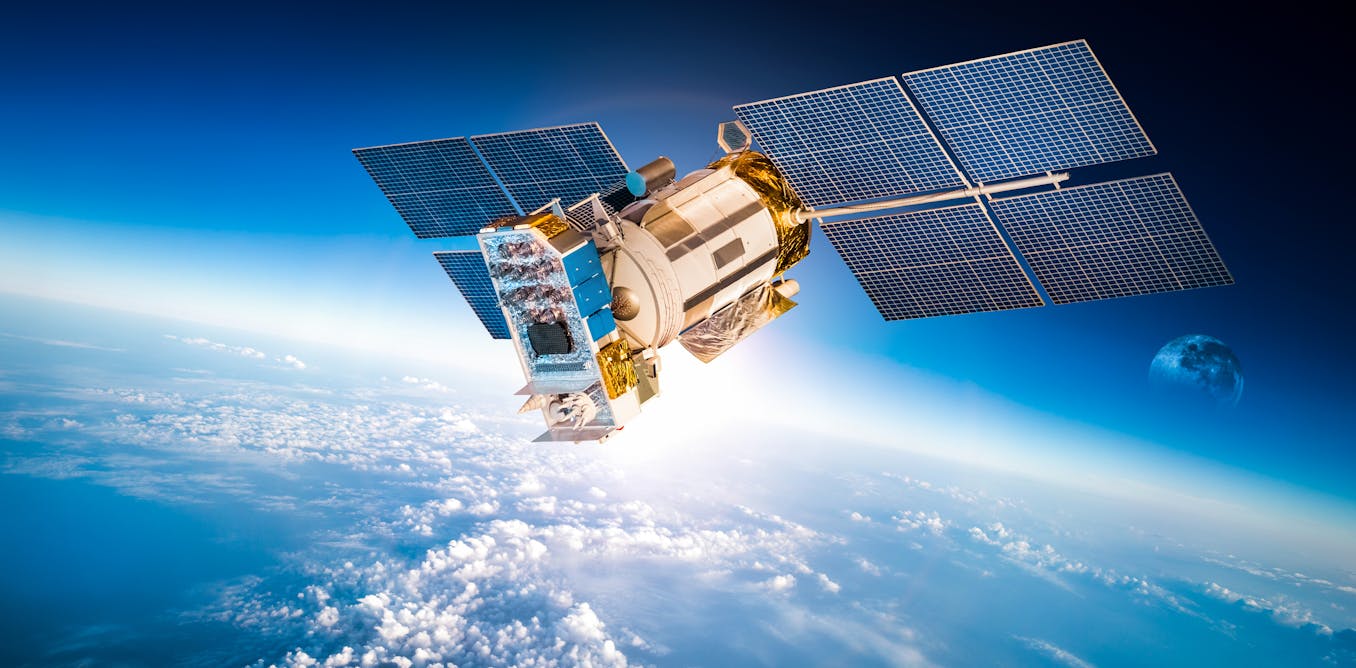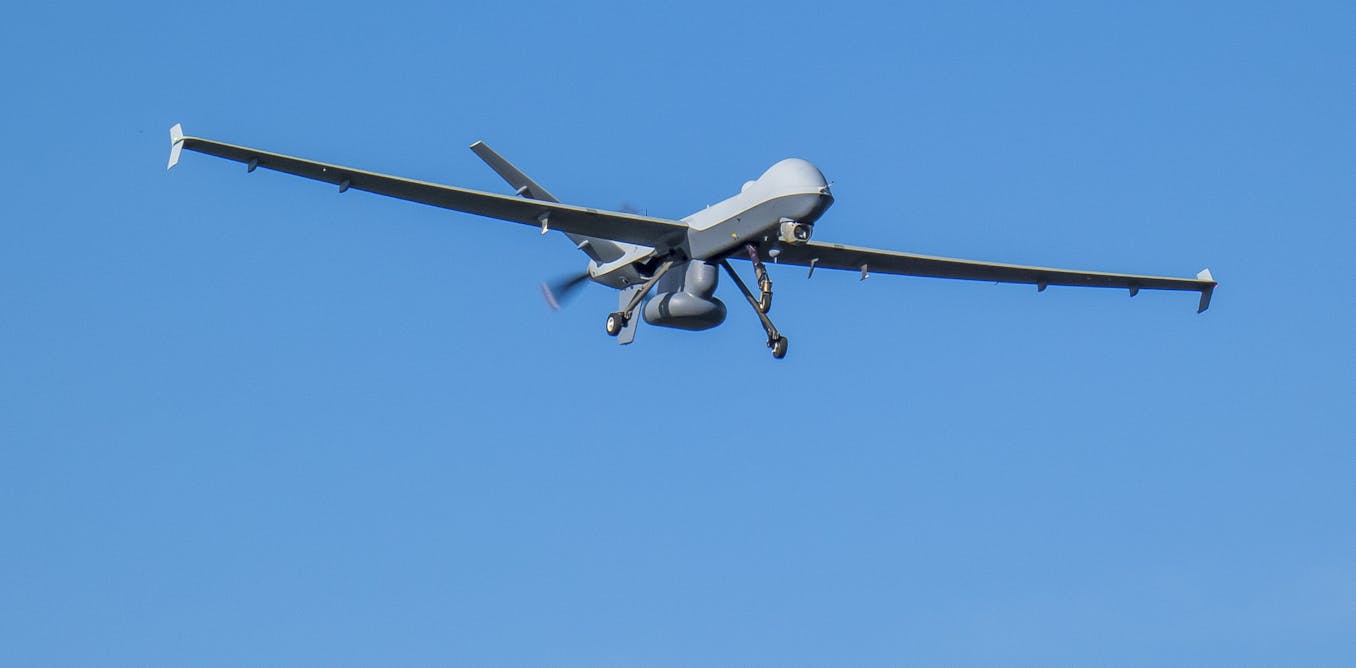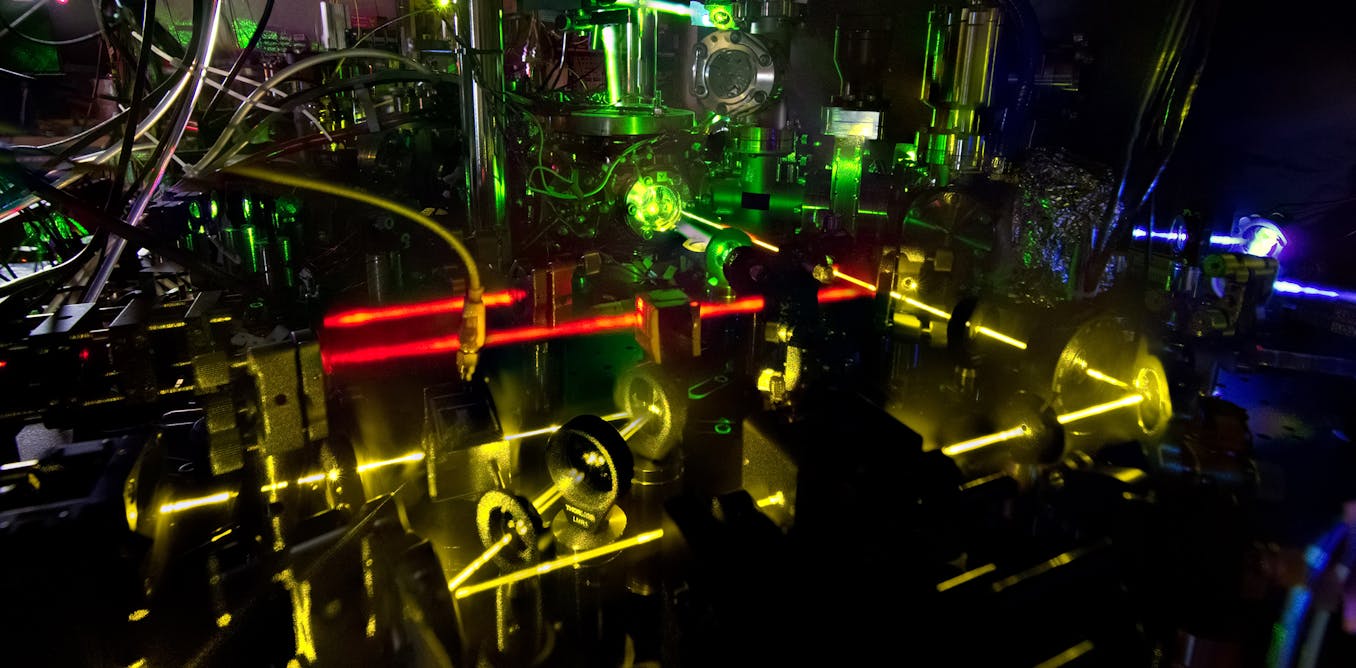Solar storms can destroy satellites with ease – a space weather expert explains the science
Space weather can affect satellites in a number of different ways, from frying electronics to increasing drag in the atmosphere.
Piyush Mehta, Assistant Professor of Mechanical and Aerospace Engineering, West Virginia University
• conversation
March 2, 2022 • ~10 min
March 2, 2022 • ~10 min
How law enforcement is using technology to track down people who attacked the US Capitol building
Facial recognition, social media and location tracking give law enforcement a leg up in a monumental investigation.
James Byrne, Professor of Criminology and Justice Studies, University of Massachusetts Lowell •
conversation
Jan. 20, 2021 • ~9 min
Jan. 20, 2021 • ~9 min
How to hide from a drone – the subtle art of 'ghosting' in the age of surveillance
Avoiding drones' prying eyes can be as complicated as donning a high-tech hoodie and as simple as ducking under a tree.
Austin Choi-Fitzpatrick, Associate Professor of Political Sociology, University of San Diego •
conversation
July 28, 2020 • ~7 min
July 28, 2020 • ~7 min
Pairing lasers with microwaves makes mind-bogglingly accurate electronic clocks – a potential boon for GPS, cell phones and radar
Researchers have made some of the most accurate clocks imaginable in recent years, but the trick is harnessing those clocks to electronics. Using lasers to tune microwaves bridges the gap.
Franklyn Quinlan, Physicist, National Institute of Standards and Technology •
conversation
May 22, 2020 • ~7 min
May 22, 2020 • ~7 min
Balloon releases have deadly consequences – we're helping citizen scientists map them
Releasing balloons at weddings and other celebrations is festive, until they break into pieces and become plastic pollution. A citizen science project is spotlighting the problem.
Shannon Brines, Applied Geographer, Lecturer and Manager, Environmental Spatial Analysis Laboratory, University of Michigan
• conversation
March 18, 2020 • ~8 min
March 18, 2020 • ~8 min
/
2




